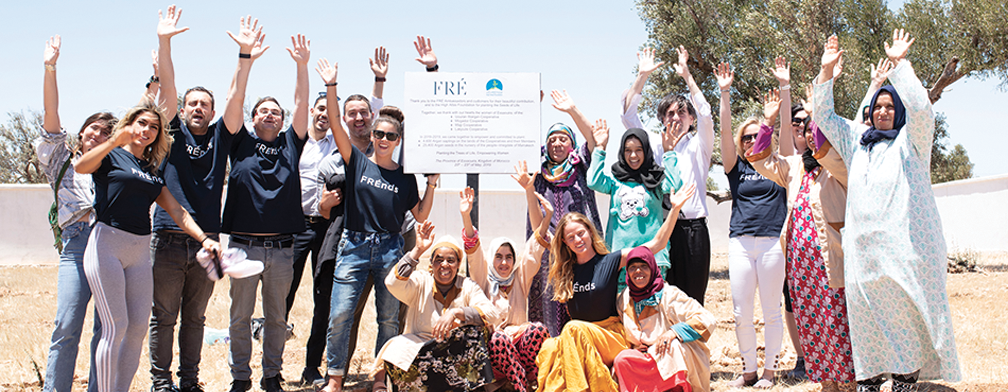ORDER BY 4/30 FOR GUARANTEED DELIVERY BY MOTHER’S DAY
30 DAY MONEY-BACK GUARANTEE ON YOUR FIRST ORDER
Your Bag is Empty
Your favorite skincare routine, specially formulated for your active life.
Select one of our subscription plans receive free auto-delivery and up to 40% off all products.
by Aaron AD January 02, 2020

We would like to introduce Dr. Yossef Ben-Meir, president of the HighAtlas Foundation (HAF), the non-profit organization that we work with to realize this mission.
Yossef is a former Peace Corps Volunteer, a father of two teenage boys, and he has been working in Morocco to promote its sustainable development since 1993. His close friends have informally bestowed the title of “Tree Planter” on him, a title he says he is most grateful to carry in this world.
The High Atlas Foundation is a nonprofit organization that is committed to improving people’s quality of life while maintaining the health of the ecosystem at the same time. Since 2003, we have planted more than three million trees and helped build clean drinking water systems with villages and schools benefiting approximately 9000 people. Our empowerment workshops have engaged more than 800 women in nine provinces. We helped build classrooms and, irrigation systems with members of cooperatives, university students, farmers, among others. We also advocate the projects prioritized by communities through direct engagements with public and private sector leaders and policy-makers, as well as publications in multiple languages throughout the world. Our university partnerships have enabled us not only to provide internships and mentorships with young people, but also harness their invaluable skills for the benefit of the Moroccan people.
HAF is essentially committed to communities’ own determined path for change and development and bringing together partners in order to achieve the people's will.
Women constitute the majority of our staff. They lead our major projects, travel nationally and internationally on behalf of the organization, and most were once volunteers for HAF prior to joining the organization full-time. HAF commits resources and time to achieve a workplace that is entirely safe, openly reflective, completely respectful.
HAF is dedicated to understanding the global context, so that we can understand and make appropriate decisions as we manage our internal relationships as an organization while also providing guidance and support for the communities whom we serve. Indeed, we strive from our hearts to be participatory and just, which is absolutely essential for us to be at all effective at applying these essential standards in our external partnerships and affairs.
The popularity of Argan Oil has led to a dramatic endangerment of the Argan Tree. At its height, this decline was up to 500 hectares annually. But the endangered trees have a social impact, too. Processing Argan nuts into oil is a traditional activity conducted primarily by women in small scale cooperatives in Morocco. The process is laborious and repetitive, done day in and day out, for years. Every act along this process is performed an infinite number of times. The pay for all this labor is minuscule. Yet it provides survival for these women and their children. If there are fewer Argan trees, these women will not have a sufficient source of income.
The HAF, with the help of people like FRÉ, is committed to dealing with both the environmental and social impacts that are linked to the use of Argan Oil. The organization is commitment to planting Argan Trees, an expenditure that is beyond the means of the Morrocan government. There still is an annual decline, but, thankfully, it is not as precipitous. Also, the trees thatFRÉ plants are not directed to the large landholders, but rather to cooperatives and small scale farmers, helping them and the women who need this opportunity the most.
--------------
The HAF-FRÉ partnership began at the start ofFRÉ and has grown as both organizations grow. The HAF’s capacity to produce Argan trees in nurseries, at a lower cost, has improved every year, andFRÉ’s capacity to support Argan planting with Moroccan communities has grown as people all over the world have come to know and enjoy theFRÉ products.
The benefits for these Moroccan women and their environment has been and will continue to be, profound.
Comments will be approved before showing up.